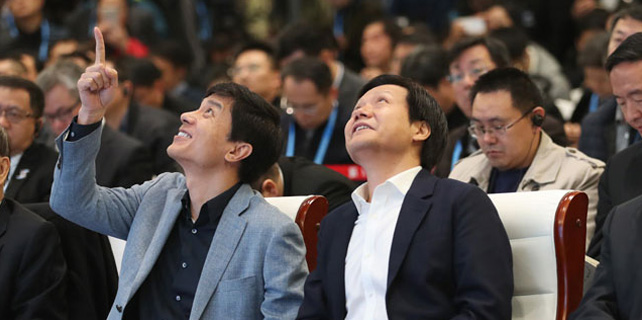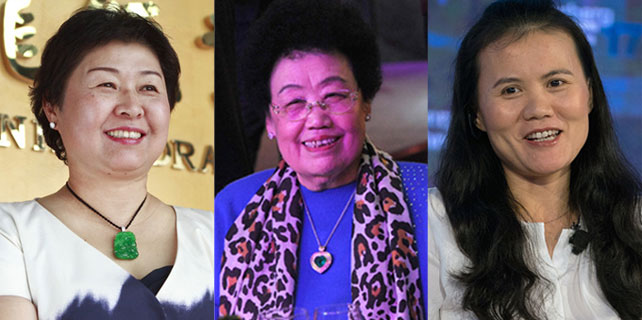Cyber celebrities redefine market reach
The good old branding method of banking only on certain proven celebrities is being challenged in digital marketing and with no guarantee of success, market experts say.
"Depending on only a few top stars also means it has become difficult for marketers to uniquely build resonance with their brand," says Maneesh Choudhary, deputy managing director of Kantar Millward Brown China, a global research firm.
Choudhary says matching the brand character with the celebrity character is key to unlocking the true potential of synergy. For instance, snack food brand Nestle Milka successfully married its warm soft persona seamlessly with the "innocence" of Zhang Yixing, a singer and songwriter, to drive sustained engagement with consumers.
|
Webcasters, wearing cool summer clothes, broadcast online through their mobile phones, soliciting business for a newly opened bar in Tongling, Anhui province. Chen Chen / For China Daily |
"This matching of personality becomes even more relevant for China's lower tiers (the next frontier of growth) where the personality of the celebrity should be down-to-earth and relatable to the people who are less advertising-literate and looking for rational and simple marketing messages," he says.
Meanwhile, brands are starting to reap more success from working with self-made bloggers, converting their own fan numbers into influence with the brands.
With more than 3 million followers on Weibo and 4.5 million fans on WeChat, Fan Yimin, who is better known by her online avatar Becky Li, helped sell 100 Mini Cooper Countryman cars within five minutes via her WeChat post last year.
She is a role model to a generation of digital natives who have established viable careers as social media "influencers", and found fame and fortune solely by posting blogs and sharing their preferences online.
The power of word of mouth is one important reason for blogger success from the cultural perspective, according to Ashley Galina Dudarenok, founder of social media agency Alarice and a veteran social media expert.
"Chinese customers have very deep trust in key opinion leaders (KOLs) and this psychological bond can be partially explained by the pseudo-intimacy created by social media," she says. "Social media make you feel like influencers are friends you know in real life, thanks to the details of their daily lives shared through Weibo, WeChat and live streaming apps."
Choudhary agrees. He referrs to the case of Zhang Dayi, one of China's best-known key opinion leaders, who reportedly earns around 300 million yuan ($43.2 million; 37.8 million euros; £33.6 million) annually, which is more than what some celebrity film actors and actresses earn.
"Brands can leverage the might of this huge traffic to garner short-term gains and if matched well with a brand's personality can also result in effective brand building," Choudhary says.
Major factors when choosing a KOL include exposure, engagement and relevance. The negative checklist involves potential risk, competitor conflict and cooperation feasibility, says Leon Zhang, general manager of social media at Media-Com China, an agency engaged in media operations and content creativity.
"Usually, clients with sufficient budgets are willing to pay for premium and quality KOLs for peak influence and quality content co-creation, while at the same time setting aside part of the budget for other lowerprofile KOLs and social ads to amplify the influence," he says.
hewei@chinadaily.com.cn
(China Daily European Weekly 11/23/2018 page29)



















